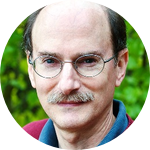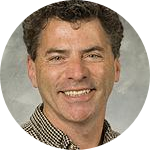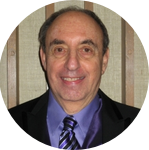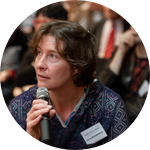About This Project
Thirty years of data suggest that non-conscious processing correlates with future events. We have used this idea to make money on the stock market, but our past results could be due to chance. In this project we examine three approaches that could produce reliable guesses about the market shifts over 120 days. We are interested in shedding light on the underlying mechanisms and opening the scientific conversation about the psychology and physics of time. Proceeds go to the Seva Foundation.
Ask the Scientists
Join The DiscussionWhat is the context of this research?
A growing research literature, including our own work, suggests that humans have non-conscious access to information about upcoming events that should otherwise be unpredictable. This seems strange to our conscious minds, because most of us don't normally experience knowing what the future will bring, except in obvious cases. Previous work suggests that we must use tricks to access this non-conscious information, like asking people to draw pictures of future images that are associated to events (associated remote viewing or ARV), or asking people to dream about the future (precognitive dreaming). We plan to test whether predictions made in this way are consistent over time, and if so, assess which methods are most accurate so we can create a theory about the mechanisms underlying them.
What is the significance of this project?
This experiment offers a challenge to the classical notions of time and consciousness. This is a high-risk/high-reward project that could potentially result in a future-prediction tool that could help us prepare for unfortunate events.
It's important to note that to avoid biased guesses, only the automatic software running the experiment will have access to the link between an image and a predicted direction of market change -- so even a market expert can't beat the system.
This experiment is a reminder to the scientific community that although we like to think we know what the laws of nature are, we are far from truly understanding time. Regardless of the results of this experiment the reminder of our relative ignorance will spark research interest in the physics and the psychology of time.
What are the goals of the project?
We plan to test the hypothesis that precognitive dreaming and remote viewing of images that will be presented in the future and are tied to stock market changes (ARV), can be used to make useful predictions about stock fluctuations. We predict two things.
One, dreams will produce more accurate guesses about stock market changes than ARV because dreams are more directly related to non-conscious processes.
Two, dreaming by a devoted precognitive dreamer and ARV by by devoted ARVers will produce accurate stock market predictions at a rate that is significantly above chance.
If successful, we will have part of the knowledge required to continue pursuing the development of a future-prediction system based on human non-conscious processing.
Budget
Because the experiment entails making stock market bets, we need an investment pool to make bets. The three pool will be split between: bets by a devoted precognitive dreamer and bets by devoted ARVers. So we need $15,000 just for the investment pool.
Because of the nature of the experiment requires independent judging we will be contracting judges. Finally the consulting fees are essential to get the research up and running as fast as possible.
If we are lucky enough to exceed our originally planned budget, we will put excess donations toward any additional consulting or financial fees. After those are paid, we will add the remaining donations to our investment pools. At the end of the experiment, any funds in our investment pools donated through Experiment.com and any profit from those funds will be donated to the Seva Foundation (after paying financial taxes).
We will alert all backers how much was donated at the end of the experiment!
Endorsed by
Meet the Team
Affiliates
Team Bio
Dr. Mossbridge's interest in how time is perceived by unconscious and conscious processes has led her to examine aspects of both cognitive and perceptual timing as well as more seemingly bizarre reverse-temporal effects. She is the 2014 winner of the Charles Honorton Integrative Contributions award and the inventor of the patent-pending Choice Compass decision-making application, in her role as Research Director at Mossbridge Institute. Julia's Ph.D. in Communication Sciences and Disorders is from Northwestern University, her M.A. in Neuroscience is from the University of California at San Francisco, and she received her B.A. with highest honors in neuroscience from Oberlin College. She also plays clawhammer banjo and loves to go Scottish dancing.
Dr. Moddel describes his path in the following way, "I spent most of my career doing essentially quantum engineering, which is engineering little devices based upon quantum mechanical principles. Then about ten years ago on Sabbatical, I got in contact by accident with a physicist who had a library full of books on the science of psychic phenomena.... I ended up spending the whole Sabbatical going through his library. After that, I was convinced that this is really where the new science and revolutionary ideas are going to come from, so I still continue my mainstream research ,and most of my colleagues don't know about my psi phenomena research, although it is on my website. I think they choose not to know."
Julia Mossbridge
My focus is on teaching and learning about love and time, and I pursue this focus by leading research and tech development projects related to love and time.
My interest in how time works has led me to examine aspects of both cognitive and perceptual timing (e.g., order effects on reading comprehension, perceptual integration across senses) as well as controversial reverse-temporal effects (covered in ABC News 20/20, Wall Street Journal Ideas Market, Fox News and other mainstream media outlets). I am also the 2014 winner of the Charles Honorton Integrative Contributions award for this work.
My Ph.D. in Communication Sciences and Disorders is from Northwestern University, my M.A. in Neuroscience is from the University of California at San Francisco, and I received her B.A. with highest honors in neuroscience from Oberlin College. I invented and patented Choice Compass, a physiologically based decision-making app, and am also the co-author, with Imants Baruss, of Transcendent Mind: Re-thinking the Science of Consciousness (APA Books 2017) and the co-author, with Theresa Cheung, of The Premonition Code (Watkins Media 2018).
Press and Media
Several articles related to this work:
http://www.ncbi.nlm.nih.gov/pmc/articles/PMC4141237/
http://arxiv.org/abs/1501.03179
http://arxiv.org/abs/1503.01368
http://journal.frontiersin.org/article/10.3389/fnh...
http://abcnews.go.com/blogs/health/2012/10/22/evid...
http://blogs.wsj.com/ideas-market/2012/10/30/peopl...
http://www.skeptiko.com/garret-moddel-brings-psi-t...
Additional Information
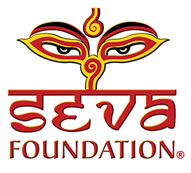
All donations sent through Experiment.com will go towards the costs of this experiment. If we raise more than the minimum required amount, additional funds will go into our investment pools. At the end of the experiment, all funds in our investment pools donated through Experiment.com, as well as any profits obtained from those funds, will be donated to the Seva Foundation after the payment of financial processing fees and taxes.
Photo credit for stock trading floor at the top of this page: Scott Beale/Laughing Squid.
Project Backers
- 26Backers
- 105%Funded
- $26,395Total Donations
- $245.96Average Donation
